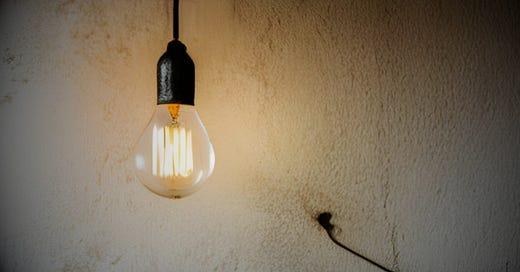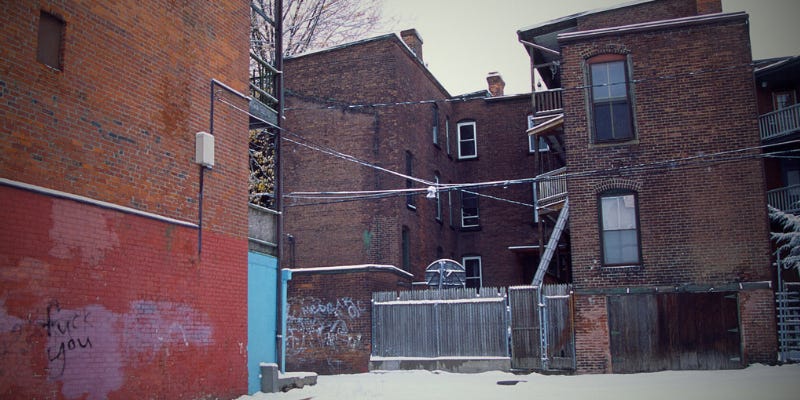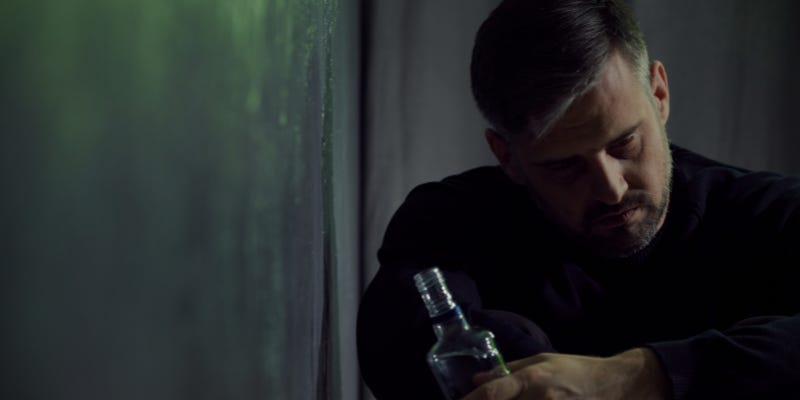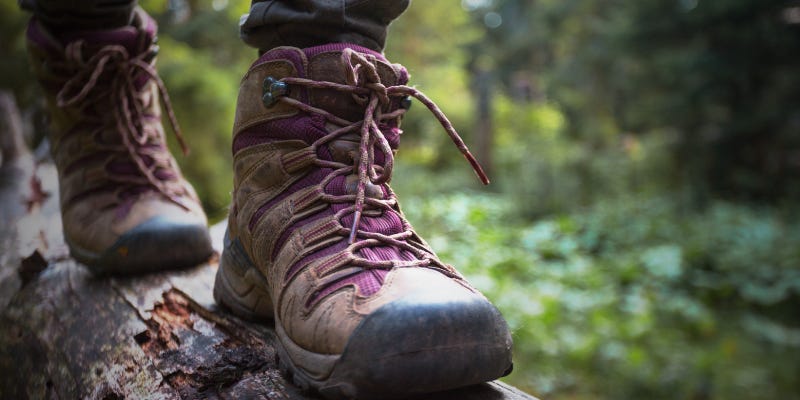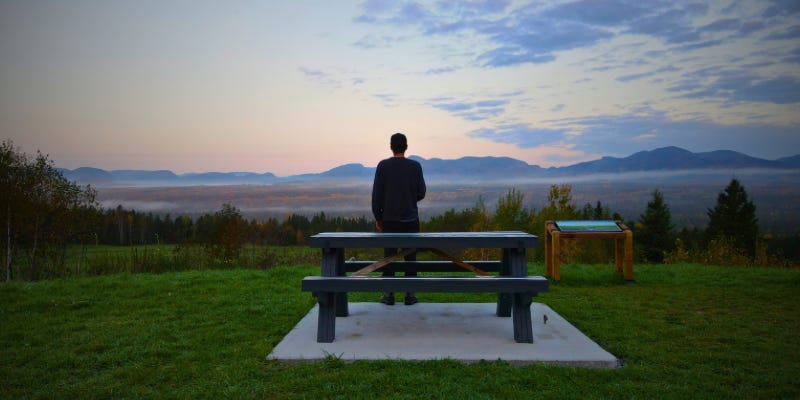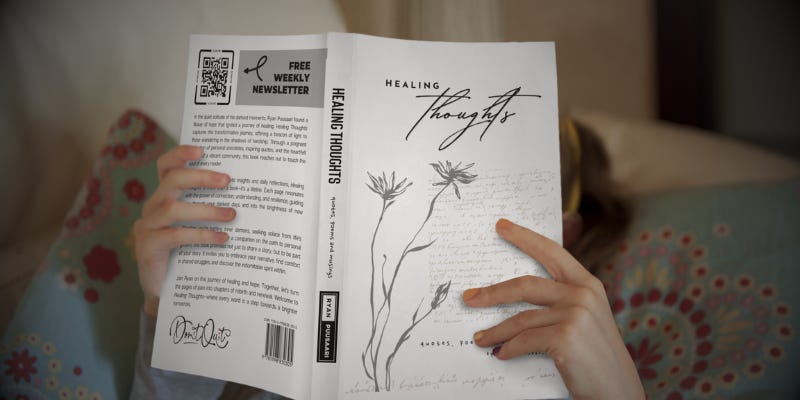discipline, damage, and defiance
Some gifts are wrapped in trauma. Unpacking them is the real work.
NOTE: This is the 2nd edition of the Live Out Loud series. To view the full series please visit the table of contents. Make sure you never miss an issue, hit the subscribe button below.
A note before we begin: Acknowledging generational trauma and its deep impact on families is one of the hardest truths to face. Our family history, the bloodline that connects us, can also be a chain of pain passed down from one generation to the next.
My parents, like most, weren’t exempt from this cycle.
They did the best they could with the knowledge and tools they had. They carried their own hurts, inherited from their parents. Their choices, shaped by their struggles, weren’t entirely theirs but a reflection of a past they hadn’t fully dealt with. Looking back, I don’t see them as villains, but as victims of a pattern of suffering passed down over time.
Now that I’m a father, I know my own children may one day look at my mistakes. No parent is perfect, and the path to becoming a better person is always a work in progress.
My hope is that we can do better than those before us—learning from their missteps and, ultimately, breaking the cycle of generational trauma.
I’ve made my share of mistakes.
But I believe that being aware is the first step toward change.
The ability to reflect, admit our faults, and actively work on them is what makes us human. It's what helps us grow and break free from the past.
Let’s start this journey with compassion and an open heart...
From the jump, my life was chaos.
My parents had divorced before my conscious mind could store the memories of their union. As a toddler, I was left to figure out life in my mom’s cramped little apartment.
My only recollection of that era is a hazy image of a smoke-filled room. Loud music shaking the walls. Strangers, in and out, quick to lose their temper if I even thought about stepping out of my room.
But that was just the beginning.
As I got older, life went from messy to straight-up chaos filled with constant shifts.
I ended up in a dingy basement—one bedroom, rough part of town, cramped with my dad.
The place was a joke.
A broken window, a flickering bulb hanging by a wire like a bad horror movie, and cockroaches always on the move.
Not exactly cozy.
Then things took a weird turn.
We ended up back in the apartment where I used to live with Mom.
Déjà vu, minus her.
She’d moved on. New place. New guy. New problems.
She showed up sometimes, arms full of stuff. Toys, clothes, you name it.
Didn’t matter.
The gifts, they don’t hug you back. They don’t fill the gaps where love should be. I craved something you can’t wrap in a bow—real care, the kind only a mom can give.
Living with my father was far from consistent.
No, it was a disaster on repeat.
The man was married to his booze.
Work, bottle, repeat.
Hours blurred together while he left me stuck in that apartment.
Time crawled.
Every minute felt like torture, like the clock itself was mocking me, dragging its hands while I waited, hoping he’d come back, knowing deep down I’d feel that same sting of being abandonment.
Again.
When he did show up—beer and books. That was his thing.
Attempts to pull his focus were met with repercussions I quickly learned to avoid.
Far too often, I saw the impact of his addiction firsthand—his sloppy stumbles, coming home with one shoe like the other one is optional, and one night, when things hit a nasty low—he got arrested for driving under the influence.
But if there was one thing that was rock solid with him, it was discipline.
And not in some gentle, “let’s talk about it” way.
Nah.
He had a spoon. A wooden one.
And he turned it from kitchen tool to weapon of choice.
His method was archaic, reminiscent of a time when physical punishment was deemed acceptable. He swung that thing like it was a cure for all bad behavior. His belief was that a firm hand, or in this case, a wooden spoon to my rear end, was the best way to instill obedience and respect.
Was it misguided?
Obviously.
But he believed it. And he believed it hard.
Each swat was not just an act of punishment, but also a misguided act of love from a man caught in the clutches of addiction. Despite his flaws, his intentions were aimed at keeping me from walking down the same path he had. It was a screwed-up attempt at saving me from a future that looked a little too much like his.
Breaking the Spoon
I was eight when rebellion lit its first spark inside me.
I was a cold, bitter night. Snow piled high outside. While inside—a storm was brewing. Tense. Thick.
I don’t remember what set it off. What I do remember is the fallout.
Clear as day.
My father's voice, stern and resolute, clashed against my defiant protests. And then, there it was. The rising tension led him to reach for that infamous wooden spoon, its presence in his hand a daunting threat of the impending punishment.
The wood felt cold. Solid. Unforgiving.
Fear shot through me.
But something else did, too—something reckless, bold, stupid maybe.
I grabbed it.
Yeah, you read that right. I took the spoon.
My dad froze, eyes wide, not sure what to make of it.
And then I did it.
Snap. Over my knee.
The crack was like a gunshot in the dead silence. I didn’t just break the spoon. I broke something else. The power it held.
For a second, my dad just stood there, staring at the splinters in my hands as he processed what had just transpired.
Shock. Pure shock. But it didn’t last.
His face shifted, his expression hardened. He didn’t say anything. Didn’t have to. He just put his hand on my shoulder and led me to what I knew was coming next.
No spoon this time. Just his hand.
And yeah, it hurt. A lot. Turns out, snapping the spoon didn’t mean the end of the punishment. It just meant it came another way.
That night changed things.
I found my voice. Took a stand.
But I also learned the hard way—actions bite back.
Sometimes, with sharper teeth than you expect. And most importantly, it was the day I realized that I probably should have just kept the damn spoon.
Solitude was my constant companion in those days.
As an only kid, I'd hide in my bedroom closet, rigging up a makeshift lock. Flimsy as cardboard—because it was. But in my chaotic world, that thin barrier felt like a fortress, providing me with an illusion of safety.
Had to build toughness out of necessity.
I became the "perfect" child: quiet, compliant, always aiming to stay off the radar.
My imagination was my escape hatch. I'd sketch out grand designs of my future home, dreaming of a life miles away from the poverty strangling us.
Didn't realize it then, but all that turmoil was shaping me.
The relentless push for perfection turned me into an overachiever, a workhorse, a quick study in new skills. Yet, shadows of the past clung tight, leaving me with lingering anxiety and a tendency to choose solitude over social scenes.
There are silver linings though.
Despite the mess, my childhood handed me some strengths: grit, an unshakable work ethic, and a wellspring of creativity.
I learned to set goals, focusing on the future, always pushing to escape the confines of my past, to make a better life for myself.
It's a strange thing to say, but I think the conditions of my childhood shaped me in ways that I can now appreciate.
I wouldn't wish that kind of upbringing on anyone, but I see now it taught me priceless lessons. It didn't just light a fire under my ambition; it showed me life's tough edges and the power of resilience.
Looking back, one thing stands out: dreams matter.
Not in some fluffy, fairytale way, but as fuel. The kind that keeps you going when everything around you says stop.
My fantasies weren’t just some random escape—they were my engine, pushing me forward. My way out. When life felt like a never-ending storm, those dreams were the flicker of light cutting through all that dark.
They weren’t just fantasies, though.
They gave me fire.
A stubborn refusal to get stuck in the same mess my family had always been trapped in. They lit a spark inside me, pushing me toward something bigger—education, growth, change.
Obstacles, yeah, there were plenty.
But those dreams made me run right through them.
Being a self-taught polymath became a crucial part of my identity.
Yeah, that became my thing.
Looking back, the rough edges of my childhood had a strange upside—they turned me into a quick learner, someone who could pick up new skills like it was nothing.
It’s a double-edged sword, though.
A gift that allows me to excel but can also overwhelm me at times.
Just too much, too fast.
Living through the chaos and volatility of my early years has had a lasting impact on my social behavior as well.
Crowds overwhelm me. I prefer solitude, often seeking refuge in my own thoughts and reflections. I pull back, hide in my own head, where it’s quieter.
I struggle with anxiety and depression, and I am often withdrawn, content with my own company. It’s easier to stay in my own space, just me and my thoughts.
The absence of siblings further entrenched my reclusive tendencies. However, this solitude also granted me an ally in silence, a trait that has followed me into adulthood.
The quiet wasn’t just a break—it was a sanctuary. A place to think, to breathe.
It’s where I could sketch my dreams.
Line by line.
Planning a future that was still mine to create.
Today, I see it.
The mess, the chaos—it’s clearer now.
Saying my childhood was complicated doesn’t even cover it. But it carved me into this weird blend of an introverted overachiever.
Anxious, sure.
But also tough as nails.
I crave quiet, hate crowds, and somehow, I pick up new skills like it’s nothing.
The wreckage of my past shaped the person I am now.
Every hit, every stumble, it left its mark, sure, but it also gave me grit.
Made me adaptable. Gave me a drive that’s hard to stop.
Resilience—check.
A work ethic that borders on obsessive—absolutely.
And creativity—that’s my secret weapon.
Yeah, my childhood was rough.
But it’s the fire I walked through that built the parts of me I lean on today. Even in the worst storms, I’ve learned to steer. Eyes always forward, locked on that sliver of light in the distance.
Chasing whatever’s next.
—Ryan Puusaari
P.S. Your time and engagement with this edition mean a lot. Every reader adds value to our journey together. Thank you for being here!
P.P.S. "Surviving chaos doesn’t just teach you to swim—it makes you build the boat, sail it, and somehow, fix the leaks along the way."
Healing Thoughts — A Journey of Reflection, Poetry, and Healing, Made Possible by You
Healing Thoughts isn’t just another book—it’s a living, breathing collection of reflections, inspiring quotes, and poetry, all pulled from the heart of this community.
Through the highs and lows, the moments of growth and vulnerability, your support made this book a reality.
Each page is a step toward healing, filled with wisdom, introspection, and emotional insight to guide you on your personal journey.
This book is more than just words—it’s our story.
Before You Go
Dive into the latest posts in the archives.
Learn more about me, this newsletter, or my daily texts.
Explore my journals and books over at Wood Island Books.
Follow me on social media for daily inspiration and updates.
Check out my recommended reading list for must-read books and authors.
View my exclusive merch collection—designed to inspire and uplift.
Have questions or thoughts? I am just an email away—reach out anytime.


